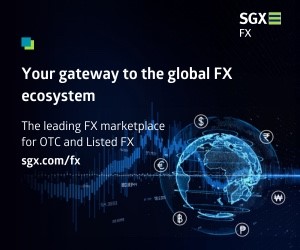FMSB To Advance Post-Trade Task Force Recommendations
Posted by Colin Lambert. Last updated: April 21, 2022
Following the report of the industry-led Post-Trade Task Force which seeks to chart the future of post-trade services in global markets, the FICC Markets Standards Board (FMSB) has established a new post-trade committee and agreed to take the task force’s work forward.
The task force was established by the Post-Trade Technology Market Practitioner Panel, which itself was founded by the Bank of England and the UK’s Financial Conduct Authority in 2019, with the aim of leading reform and innovation in the post-trade space. The report observes that “innovation in post-trade processes and client onboarding processes has at times lagged behind other parts of financial markets.”
The task force report notes that fixing many of the problems in post-trade would require standardisation, however it adds many of these problems could be substantially improved by increasing use of existing best practice models and standardised terms; increased use of existing technology; or by better connecting existed automated solutions.
Key amongst the recommendations made is the creation of a post-trade industry leadership group to develop and promote best practices as asset class level – a task that will be taken on by FMSB, whose members will form a Post-Trade Committee with three working groups to consider the potential implementation of the task force’s recommendations within FMSB’s governance structure.
“FMSB taking this work forward will allow key Post-Trade Task Force recommendations to be adopted by the market at pace,” says Myles McGuinness, CEO of FMSB. “Through our membership, which is made up of all participants in wholesale markets, and our unique standards adherence process, FMSB is well placed to build on the Task Force’s output and embed it in the industry.
“We intend to follow the Task Force’s established areas of focus on i) Non-Economic Trade Data (LEIs) ii) Client on-boarding, and iii) Uncleared Margin,” he continues. “We will also work with other practitioner groups who focus on specific aspects of the Task Force’s work to ensure the final output reflects industry best practice.”
“Post-trade systems and processes are the lifeblood of the financial system but these are also areas where innovation has lagged”
The report makes key recommendations around three areas – non-economic trade data, uncleared margin and client onboarding. For the first it stresses the use of LEIs as early as possible in the trade lifecycle and the publication of metrics to show which market participants are not using them in this way. The standardisation of data models and message formats is also recommended, as is the definition of the “ideal” process for automated SSIs, as well as the optimisation of current technology to ensure it is used to full advantage within the CCI workflow.
The leveraging of emerging technology for settlement is also recommended, as is exploring the means by which smaller participants can be incentivised to utilise automated settlement systems, including the use of global custodians who offer automated services.
The report also recommends consideration on what metrics on operational performance could be collected and published to highlight where problems with settlement lie.
These might include, the task force says, speed to send allocation from asset manager to broker; speed to confirm trade between sell side and buy side; number of confirmation mismatches; speed to send trade to repository; speed to match trade at repository; number of exceptions during matching at repository; and fail rate. The task force adds the metrics would need to work for all market participants without imposing too great a reporting burden or creating issues around publication of confidential information or other anti-trust concerns.
An outreach programme is also recommended, including a market survey to understand why existing automated solutions are not more widely used and the creation of an industry-wide education programme focusing on the different between good and poor discipline in relation to settlement. Finally, the task force recommends engaging with prospective providers of consolidated tapes as to whether their solutions could also be used for non-economic trade data.
On uncleared margin, the report makes three recommendations on areas to be worked on – in partnership with ISDA – these are the potential for inter-operability and convergence between existing vendor and utility solutions to ease adoption; the development of industry-wide metrics to provide visibility on pain points and common issues; and the creation of a fully digited system for the whole transaction lifecycle.
In the final key area, the report recommends forums and open industry discussions around client onboarding – these would involve discussion over the establishment of standardised document requirements and data definition; the use of these standards by vendors to improve inter-operability; a single passporting platform for vendor solutions; and liaising with regulatory bodies as they play their role in facilitating change.
“Post-trade systems and processes are the lifeblood of the financial system but these are also areas where innovation has lagged,” says David Hudson, the task force chair and co-head of digital and platform services at JP Morgan. “Failure to innovate will inevitably raise the cost of financial services and pose risks to operational resilience. The Task Force has made great progress over the past year to arrive at the tangible recommendations set out in this report, which tackles many of the key problems in post-trade. Knowing that we have a critical mass of market participants engaged in this initiative, I am hopeful that this will create a step change in how we think about these issues.”
Andrew Hauser, executive director for Markets at the Bank of England, adds, “Harnessing new technologies and improved processes to improve the resilience of the financial system as a whole was one of the priorities identified in the Bank of England’s response to the Future of Finance report in 2019. Following that report, we convened a Post Trade Technology Market Practitioner Panel to scale the overall challenge, and identify three specific areas where change was both pressing and feasible. The Bank of England welcomes the recommendations of the Task Force for action in those areas, which amongst other things encourage wider adoption of efficient best practices, greater standardisation, and less duplication – and look forward to the work of the FMSB.”
Meanwhile, Edwin Schooling Latter, director of markets and wholesale policy and wholesale supervision at the FCA, says, “The FCA is encouraged by the progress the Task Force has made on this agenda. This work is important to help support the efficient, effective functioning of wholesale markets. We are pleased that the FMSB will be taking forward the work on the Task Force’s recommendations.”



